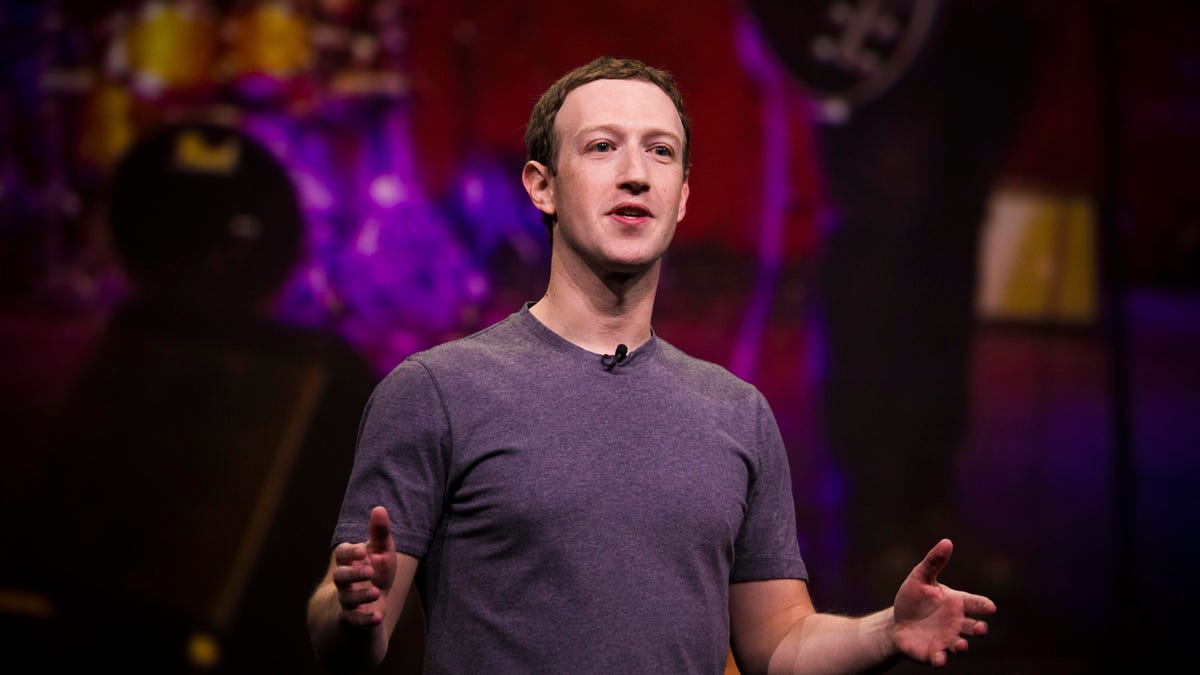Mark Zuckerberg used your Facebook data as 'bargaining chip' against rivals, report says
Roughly 4,000 leaked Facebook documents show that user privacy wasn't a major concern, according to an NBC News in-depth report.

Facebook CEO Mark Zuckerberg oversaw efforts to control rivals with its user data, according to NBC News.
Facebook reportedly used its massive trove of user data as leverage in deals it struck with outside companies -- granting access to some partners and denying it to competitors and rival apps.
CEO Mark Zuckerberg oversaw the social network's efforts to control competitors by treating user data as a "bargaining chip," according to an NBC News in-depth report on Tuesday.
NBC said it obtained roughly 4,000 leaked Facebook documents, mostly from 2011 to 2015. The documents, which reportedly stem from a court case between Facebook and app developer Six4Three, include emails, chat logs, presentations, spreadsheets and meeting summaries, according to NBC News. Some documents were previously released by the UK Parliament as part of its investigation into the Cambridge Analytica data scandal, NBC News said.
Facebook has said multiple times that it does not sell people's data, including in an op-ed in January from Zuckerberg in The Wall Street Journal. The company reiterated that point in a statement Tuesday.
"As we've said many times, Six4Three -- creators of the Pikinis app -- cherry picked these documents from years ago as part of a lawsuit to force Facebook to share information on friends of the app's users. The set of documents, by design, tells only one side of the story and omits important context," Paul Grewal, Facebook vice president and deputy general counsel, said in an emailed statement. "But the facts are clear: we've never sold people's data."
While it might not sell that data for financial benefits, Facebook has used its massive collection of data to its advantages in ways beyond sales.
The documents show Facebook considered several ways that third-party apps could compensate it for access to user data, according to NBC News, including ad spending, data sharing and direct payments. The company reportedly decided to grant access to partners that spent money on Facebook or shared their own data, as well as sharing data with app developers considered personal friends of Zuckerberg.
The report found that Facebook would also withhold access to data for rival companies, including MessageMe, an app that was gaining popularity and could pose a threat to Facebook Messenger.
As the world's largest social network, Facebook controls data on more than 2 billion people, and who has access to it. Some lawmakers have suggested that Facebook get broken up to diminish its hold on social media. The tech giant also owns Instagram and WhatsApp.
Politicians have also called out Facebook over mismanaging people's sensitive data, as critics argue that the social network values profits over privacy. The company has made multiple attempts to convince the public it's changed, including the creation of a series of pop-ups to explain Facebook's privacy practices.
In March, Zuckerberg said that Facebook would put more focus on privacy, viewing it as the social network's future.
But the leaked documents show that for Facebook, privacy seems to be more of a public relations ploy than a concern about its users.
When Facebook cut off data access to its rivals, for example, it released public statements that it was protecting user privacy. And after it became public that Cambridge Analytica was siphoning off millions of people's data through online quizzes, Facebook limited developer access to data.
Despite those shifts, Facebook has still been sharing heaps of data with companies like Netflix, Amazon and Spotify.
Originally published at 6:47 a.m. PT.
Update, 7:52 a.m.: Adds details on Facebook.
Update, 9:24 a.m.: Adds comment from Facebook.



